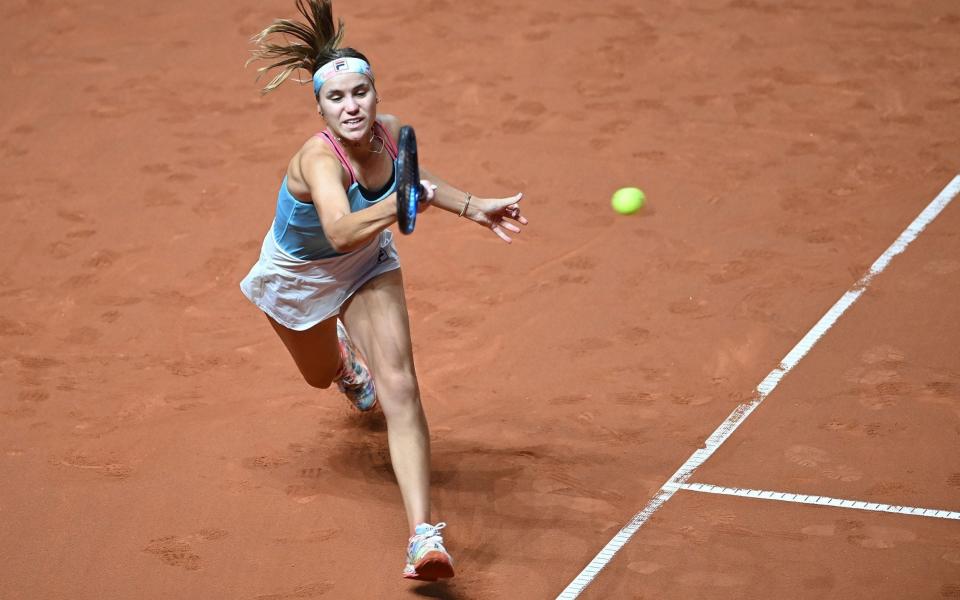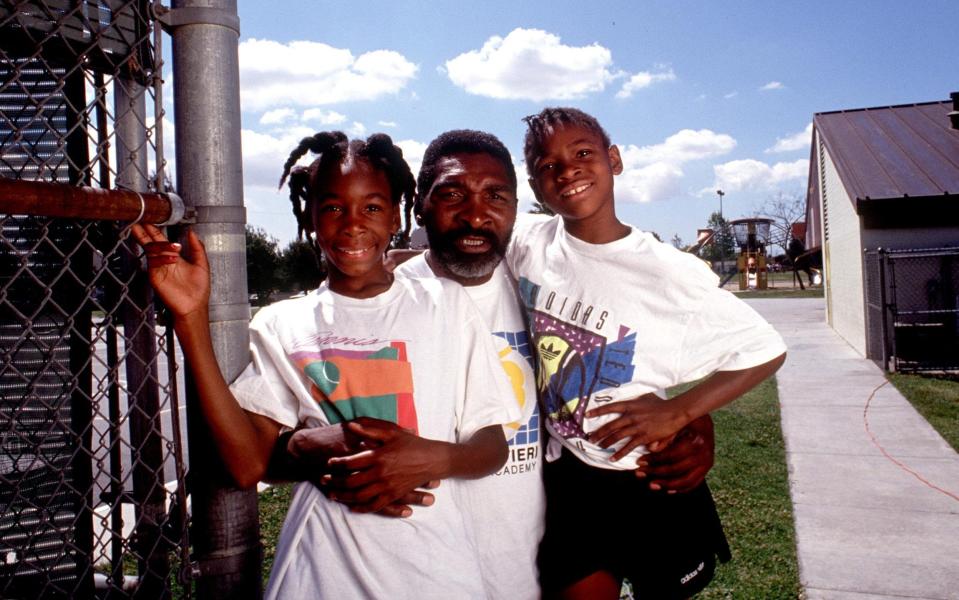The tennis dad phenomenon: why are so many professional players coached by their parents?

Q: When is a coach more than just a coach? A: When he is also your father.
This situation is so common in professional tennis – especially on the WTA tour – that we take it for granted. And yet, the more you think about it, the more obvious the pitfalls become.
Perhaps this explains two recent instances of dad-sacking. First up was Caroline Garcia, the French 27-year-old who had been tipped for the top by Andy Murray a decade ago. "Today, I have more confidence in myself," Garcia told L’Equipe, after recruiting Gabriel Urpi to perform coaching duties instead of her father Louis-Paul.
Then it was the turn of 22-year-old Sofia Kenin, last year’s Australian Open champion, to announce a professional split with her own dad Alex. "I felt like now was the time for me to do what I wanted to do myself," said Kenin.
Why are these dynastic duos such a tennis phenomenon? We don’t see many family members on the touchlines of professional team sports – and no wonder. Any sensible football academy keeps parents at a bargepole’s length. Who needs that explosive cocktail of unrealised ambition and blind faith anywhere near the pitch?
The difference with tennis – a dysfunctional sport in so many ways – is that young players and their families usually pick their own routes through the minefield of junior development. And when they see what it costs to hire a professional coach, many resort to the DIY approach.
If father-daughter combinations are especially prevalent, that’s partly because it’s a little easier for ageing men to keep up athletically with young girls – and perhaps even to order them around.
But the biggest issue is about pastoral care. Who wants to send their teenage daughter around the world with an older coach – almost always male, given how few women work in this field – when they might barely know him as a person?
Such a gamble would keep most of us awake at night. Especially as most tennis players are less than streetwise, having skipped years of school and everyday socialisation. Their emotional immaturity makes them all the more vulnerable to abuse or exploitation.

In the darkest cases, the father is not protecting his daughter, but victimising her himself. Think of Jelena Dokic’s father kicking her with his sharp-toed dress shoes, leaving her with all-too visible bruises on her shins. Or Mary Pierce’s father Jim, whose violent temper eventually forced her to hire a bodyguard.
How do you spot the bad ones? It’s impossible to know what goes on behind closed doors. But as Jon Wertheim accurately observes in his 2001 book Venus Envy: "The dysfunctional tennis father … has often quit his job – the telltale sign of trouble."
His fellow author Peter Bodo makes an equally astute point in Courts of Babylon (1995). "I’ve yet to meet one who didn’t claim to have been some kind of world-class jock who just didn’t happen to make the Olympics or Wimbledon because of blah-blah-blah." What’s more, Bodo suggested, these characters "have proliferated because … tennis is blissfully free of sticky child labour laws".
When so much of the tour’s focus is on rankings points and prize money, the temptation is to start seeing your child as an asset – a human racehorse, almost. Stefano Capriati, a classic domineering dad, was once accused of using his daughter Jennifer as "a ponytailed ATM". Great line; horrible situation.
"It’s so easy to get over-invested," one experienced tennis parent told me. "People think 'It’s my daughter, I don’t want anyone else having a piece of this'. They have invested such incredible amounts of time, money and emotional energy in taking their child into the top 100 or wherever. They often don’t want her to start seeing boys in case everything goes to pot."
This last point certainly rings true. The father of one leading player used to sit in a chair outside her hotel room at night, determined to prevent a tryst with a male player she admired. Another responded to his daughter visiting her boyfriend by ringing the WTA and making wild allegations about the boyfriend in question.
As for Louis-Paul Garcia, he always came across as quiet and understated – hardly one of the "hard-driving, overbearing creeps" referred to in Wertheim's book. But he was certainly vigilant. Garcia remains the only tennis parent who has insisted on sitting in when I interviewed his child, even though Caroline was 21 at the time.
None of this is meant to demonstrate that tennis dads are necessarily A Bad Thing. We should pick out some positive examples too. Maria Sharapova and the Williams sisters might not seem to have much in common, but Yuri Sharapov and Richard Williams did.
Both men had an unshakeable, messianic conviction that their daughters would make it. They also engaged other coaches, even from an early stage, and made the difficult – yet admirable – decision to step back from the front line once success was assured.
Caroline Wozniacki’s father, Piotr, is another interesting case. He exerted an iron grip on his daughter’s tennis life, judging by several failed attempts to bring in outside consultants. And yet, the whole family dynamic seemed to run smoothly, thanks perhaps to the fact Caroline’s mother Anna and brother Patrik often travelled with her too, bringing some kind of normality to what can be a claustrophobic situation. The success of the whole operation can be judged from the fact that Caroline herself is one of the most charming and well-rounded athletes you could hope to meet.
Such skilful man- or woman-management is an impressive feat. In most cases, though, close involvement in your son or daughter’s career tends to blur personal and professional boundaries in a manner that could keep a shrink in business for years.
Any would-be Richard Williams should cast his mind back to that precious moment when his daughter learned to ride a bike. A supporting hand is valuable – but only up until a certain point. Once she is pedalling away happily by herself, the best policy is to stand back and applaud.

 Yahoo Sport
Yahoo Sport 





































